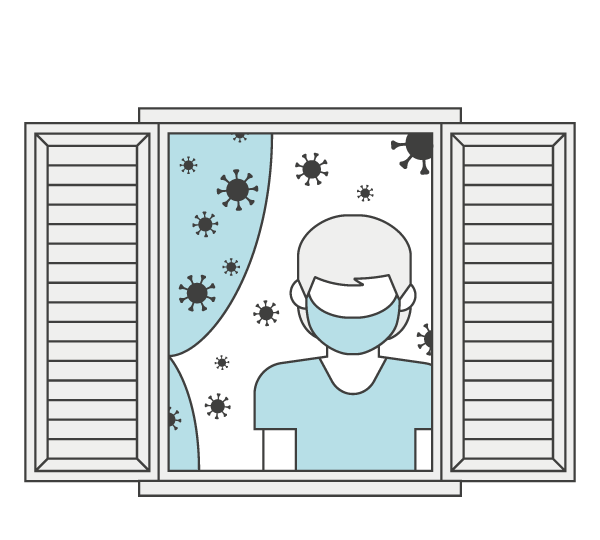
Covid-19 confined people
Since beginning of year 2020 and for all the duration of the pandemic situation created by the COVID-19 outbreak, people belonging to this group are affected by mobility restrictions imposed by governments and health authorities to preserve public health and prevent infection.
The Covid 19 confined group of people includes people with none or reduced number of daily trips allowed out of home. Confinement due to COVID-19 restrictions distinguishes between isolation (separates sick people with a contagious disease from people who are not sick) and quarantine (separates and restricts the movement of people who were exposed to a contagious disease).
In the context of the INDIMO project the specific needs of people belonging to this group will be addressed and digital delivery solutions to mitigate the negative impacts of being confined will be identified. Concretely, when one contangoed person lives alone and cannot go out, s/he may need a care giver’s support for her/his basic needs (i.e., food and medicaments, shopping and waste disposal). However, when the contangoed person is living with other family members, the support needed for respecting quarantine rules is potentially increased. Digital Delivery Solutions have become essential to maintain acceptable living standards during pandemic time.
References:
Banerjee, D., & Rai, M. (2020). Social isolation in Covid-19: The impact of loneliness. International Journal of Social Psychiatry, 66(6), 525–527. https://doi.org/10.1177/0020764020922269
Usher, K., Bhullar, N., & Jackson, D. (2020). Life in the pandemic: Social isolation and mental health. Journal of Clinical Nursing, 29(15–16), 2756–2757. https://doi.org/10.1111/jocn.15290
Jurblum, M., Ng, C. H., & Castle, D. J. (2020). Psychological consequences of social isolation and quarantine: Issues related to COVID-19 restrictions. Australian Journal of General Practice, 49(12), 778–783. https://doi.org/10.31128/AJGP-06-20-5481
